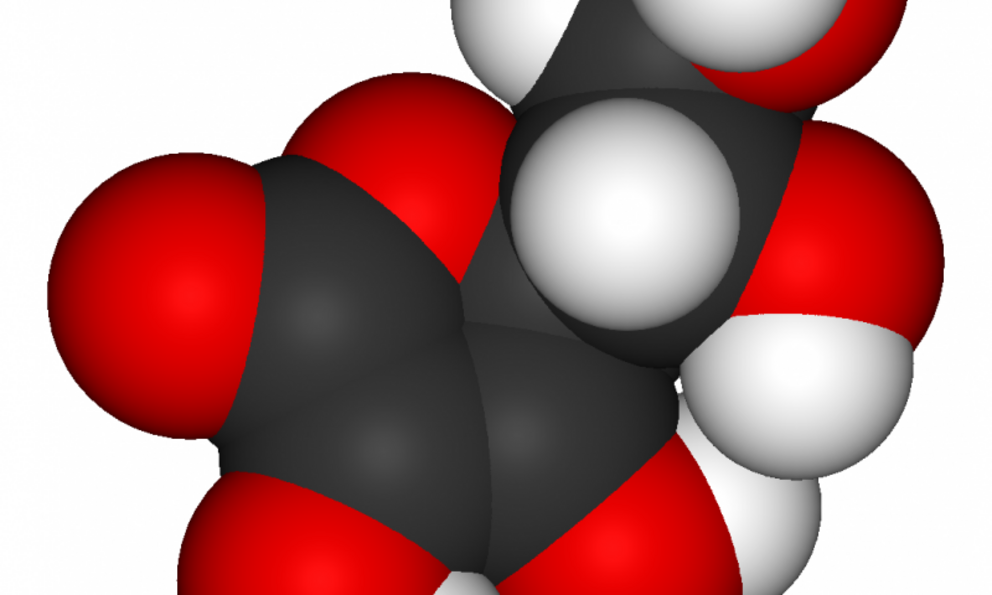High doses of vitamin C found to enhance immunotherapy in combating cancer in mice
Model of a vitamin C molecule. Black is carbon, red is oxygen, and white is hydrogen.
A team of researchers affiliated with multiple institutions in Italy has found that giving cancerous mice high doses of vitamin C (ascorbic acid) enhanced immunotherapy, resulting in slowed or stopped tumor growth. In their paper published in the journal Science Translational Medicine, the researchers describe their studies of vitamin C and how it might be used to treat cancer patients.
As far back as the 1970s, medical researchers suspected that giving cancer patients high doses of vitamin C might help to reduce tumor growth—but subsequent studies failed to find any benefits, and researchers lost interest. In recent years, interest in using vitamin C to treat cancer patients has rebounded after studies found that the earlier researchers had been giving vitamin C to patients orally. The gut does not absorb high amounts of vitamin C, which meant the earlier patients had not received concentrations in high enough doses to have an impact. In this new effort, the researchers injected vitamin C directly into the veins of test mice as part of an immunotherapy regimen, and then monitored tumor growth.
The researchers found that adding high doses of vitamin C without immunotherapy resulted in delayed tumor growth in test mice. When it was given as part of an immunotherapy regimen with the mice, they found it slowed or stopped growth of melanoma, colorectal, pancreatic and breast cancer tumors. Furthermore, they found that it did so by providing support to T cells. They also found that vitamin C boosted the effectiveness of PD-1 and CTLA-4 checkpoint antibodies. And they found that in some cases, adding vitamin C to the immunotherapy regimen resulted in some breast cancer tumors disappearing completely.
The researchers note that the major hurdle standing in the way of using vitamin C to treat human cancer patients is the possibility of side effects. They note that they gave the test mice the amount of vitamin C in a single orange every day for several days. Translating that to humans would mean giving the equivalent of 2000 oranges every day for a period of time.
More information: Alessandro Magrì et al. High-dose vitamin C enhances cancer immunotherapy, Science Translational Medicine (2020). DOI: 10.1126/scitranslmed.aay8707
Journal information: Science Translational Medicine

